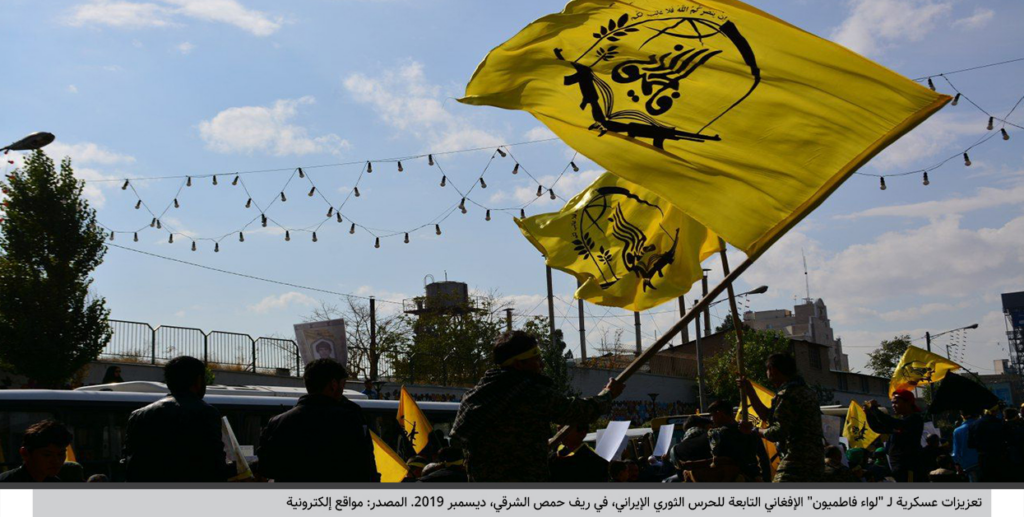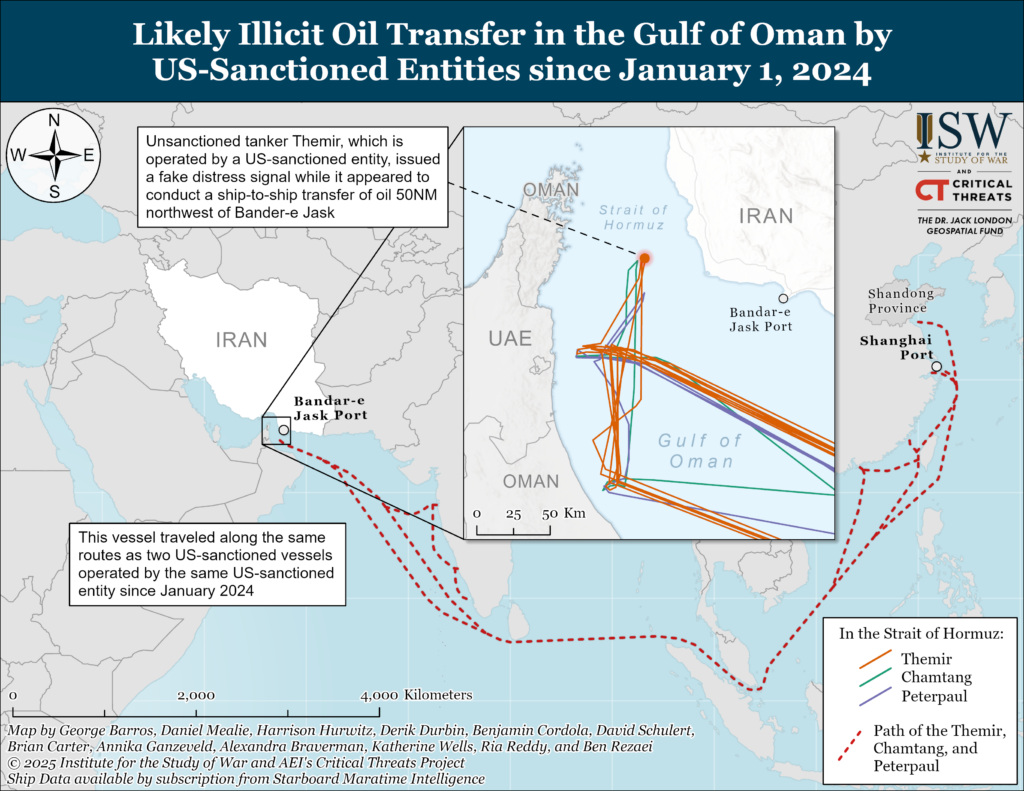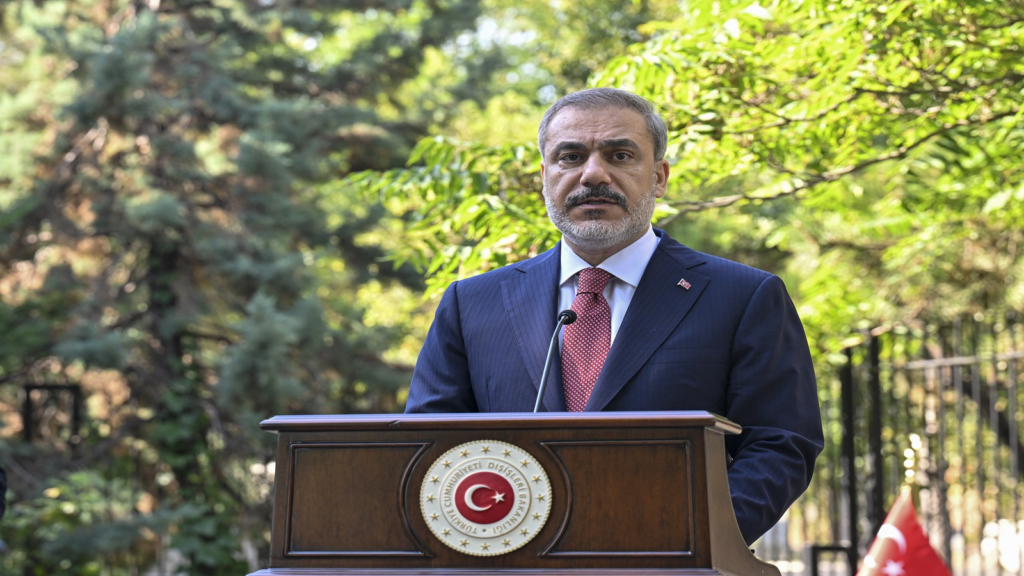Orientul Mijlociu
The file of foreign fighters in Syria: between entitlement and risk

This paper examines the complex situation of foreign fighters in Syria after the change of the former regime, details their composition, explores the long-term challenges and risks arising from their integration into the new Syrian army, their leadership roles, and the consequences of this locally and internationally, and addresses the issue of thousands of foreign fighters detained from ISIS. It reviews the future scenarios of these fighters, whether those involved in the structures of the new state, or ISIS detainees with the Syrian Democratic Forces.
Hamas

Hamas is a U.S.-designated terrorist organization which has killed hundreds of Israeli citizens, as well as Americans, in suicide bombings and other terrorist attacks. Hamas has governed the Gaza Strip since it violently expelled the Palestinian Authority in 2007.
Latest
May 2025: On May 13, Israel launches an airstrike on a hospital in Khan Younis, reportedly killing Muhammad Sinwar. Neither Israel nor Hamas immediately confirm Sinwar’s death. At least 70 people are reportedly killed in the airstrikes on Khan Younis and around northern and southern Gaza. On May 21, Netanyahu declares that Sinwar is likely dead. On May 28, Netanyahu announces that Sinwar had been killed in the strike earlier that month.
L’Union européenne lève les sanctions contre la Syrie pour soutenir les djihadistes

Hier, l’Union européenne a annoncé la levée des sanctions économiques imposées à la Syrie durant la présidence de Bashar al-Assad. « Nous avons décidé de lever nos sanctions économiques contre la Syrie », a déclaré la responsable de la politique extérieure de l’Union européenne, Kaja Kallas, après une réunion des 27 ministres des Affaires étrangères.
Le «Dôme d’or» de Washington : au mieux un vol de plusieurs milliards de dollars d’impôts, au pire une provocation dangereuse – Réseau International

Le président américain Donald Trump a annoncé que son administration avait choisi l’architecture du système de défense antimissile «Dôme d’or» proposé, affirmant qu’il coûterait 175 milliards de dollars et serait opérationnel en «moins de trois ans» avec un «taux de réussite proche de 100%».
Syria’s Sharaa Administration Grapples with Foreign Fighters Amidst ISIS Resurgence Concerns – The Syrian Observer

The issue of foreign fighters in Syria has resurfaced prominently following a recent meeting in Riyadh between U.S. President Donald Trump and Syrian President Ahmed al-Sharaa, brokered by Saudi Crown Prince Mohammed bin Salman. During the meeting, Trump reportedly presented President Sharaa with five key conditions, notably demanding the repatriation of foreign fighters and the removal of individuals he described as “Palestinian terrorists”—a clear reference to groups like Palestinian Islamic Jihad, Hamas, and other Palestinian armed organisations—from Syria. Additionally, Trump’s conditions included a demand for Syrian cooperation in preventing the resurgence of the Islamic State (ISIS) and the transfer of administration of ISIS detention centres in northeastern Syria to Damascus authorities.
Syria’s captagon industry continues to flourish despite new regime crackdowns

When Syrian President Ahmad al Sharaa entered Damascus in December 2024 as a victorious rebel, he remarked that Syria was “the world’s leading source of captagon” but “is being purified by the grace of God almighty.” However, despite Sharaa’s words, the captagon industry continues to operate.
Iran Update, May 21, 2025
An unsanctioned oil tanker that is operated by a US-sanctioned entity and has probably illicitly transported oil to the People’s Republic of China (PRC) from Iran issued a false distress call in the Strait of Hormuz on May 20.[1] The Panamanian-flagged oil tanker the Themir likely issued a distress call that claimed it had been hijacked.[2] A British maritime security firm said that the distress call occurred 51 nautical miles northwest of Bandar-e Jask, which is consistent with the Themir’s position. The firm confirmed on May 21 that the hijacking call was a false alarm.[3] It remains unclear at the time of writing why the Themir issued the false distress call, but the vessel is linked to Iranian efforts to illicitly transfer oil.[4] The United States sanctioned the Themir’s Malaysia-based owner, IMS Ltd, on February 24 for aiding the Iranian oil export network, as part of US President Donald Trump’s ”maximum pressure” policy.[5]
The Themir’s pattern of behavior suggests it may have conducted a ship-to-ship transfer at some time while off the coast of Iran.[6] Iran and the PRC use ship-to-ship transfers to obfuscate the transportation of PRC purchases of Iranian oil, and ships travel in circular holding patterns when conducting ship-to-ship transfers.[7] The Themir was in a circular holding pattern 51 nautical miles northwest of Bandar-e Jask Port on the southern coast of Iran at the time of the distress call, according to maritime data.[8] The ship and its two sister ships—the Peterpaul and the Chamtang—have regularly sailed between the Gulf of Oman and the PRC.[9] Both the Peterpaul and the Chamtang are sanctioned for illicit transfers of Iranian oil to the PRC.[10] The ships usually enter circular holding patterns in the Gulf of Oman before sailing eastwards to PRC ports. Circular holding patterns can indicate that the ships are executing ship-to-ship transfers.[11] The Themir also previously travelled from the Gulf of Oman to the PRC’s biggest oil offloading port, Shandong Port, in September 2024.[12] The US Treasury Department recently sanctioned refineries in Shandong for importing billions of dollars in Iranian oil.[13] The Themir has also travelled along similar routes as its two sanctioned sister ships from near Bandar-e-Jask Port to eastern PRC through the Gulf of Oman and Malacca Strait five times since January 2024, suggesting that the Themir has previously illicitly transported Iranian oil to the PRC.[14]

Tripartite Foreign Ministers’ Summit in Ankara: Syria, Turkey, and Jordan to Tackle Regional Security and Cooperation – The Syrian Observer

Ankara is hosting a high-level trilateral summit Sunday, bringing together the foreign ministers of Syria, Turkey, and Jordan to discuss regional security, economic cooperation, and the future of joint counterterrorism efforts.
